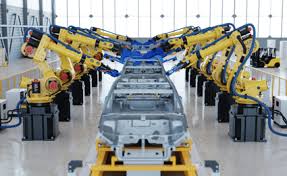Islamabad, Aug 10: Vendors have been obliged to halt manufacturing due to the local vehicle assemblers’ start of plant shutdowns. For instance, Bolan Castings Ltd (BCL) reported a decline in sales in a public filing on Friday, citing a sharp decline in client orders. Consequently, the administration has made the decision to temporarily suspend production from August 12–16.
In addition to suspending production from August 1–13, Pak Suzuki Motor Company Ltd. (PSMCL) has extended non-production days (NPDs) till August 15-20. On Friday, the automaker notified its suppliers that unless they received other essential components, it would not accept supplies linked to the fabrication of four wheels. The manufacturing of two-wheelers will proceed according to schedule, nevertheless.
Both two-wheeler and four-wheeler supplies will be sent to spare parts warehouses. PSMCL ordered the vendors to increase their completed goods safety stockpiles and promised to make up for any production losses during the September–December timeframe. It has experienced delays in the approval process for fully dismantled kits that are stuck at ports for the past forty-five days.
The assembler of Toyota automobiles, Indus Motor Company (IMC), likewise put a stop to production from August 6–8, citing inadequate raw material and component inventories as a cause of the assembly-related issues. car part manufacturer/exporter Mashood Ali Khan claimed that the suppliers, who depend on providing parts to a car assembler with a single source, are currently in hot water. As soon as the assemblers shut down the plant, they are forced to stop producing parts.
In the event that there is no part production, he said, “this is a critical situation for such vendors as to how they will manage high power and gas bills, salary disbursements and overhead expenses.” After the FY25 budget, he pleaded with the government to acknowledge the difficulties auto assemblers and their suppliers were having and to convene a conference with the relevant parties to find solutions.
The industry ministry has been notified by Pakistan Automotive components and Accessories Manufacturers (Paapam) that the automobile components sellers are facing difficulties as a result of the stringent application of WP29 UNR regulations.
Auto part suppliers report that several of the 17 products and components chosen for WP29 adoption have attained complete compliance. However, as there were no testing facilities in the nation, the sector was forced to pay a high price for certification by international laboratories. As a result, there has been an increase in costs, an effect on the cash flow of vendors, and a withdrawal of foreign currencies from the nation.
Various constraints related to the availability of technical support from Japanese vendors, their reluctance to form technical agreements with Pakistan and send their engineers, and nation risk have prevented some components and vehicle types from achieving WP29 certification.
Paapam Chairman Abdul Rahman Aizaz told the ministry, “We need more time to convince these Japanese vendors to assist us in achieving certification and compliance.” He also said that because of the aforementioned circumstance, the Engineering Development Board is not approving the import quota of assemblers, which has led to some assemblers announcing a shutdown of production. This will be detrimental to vendors because many businesses may file for bankruptcy as a result of losing business in these difficult economic times.

